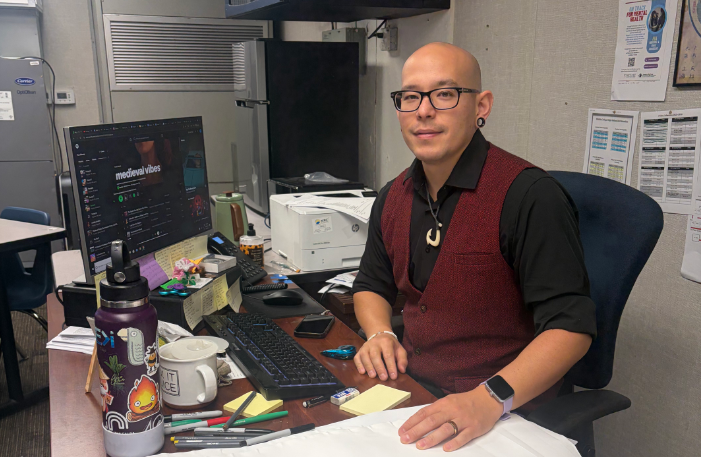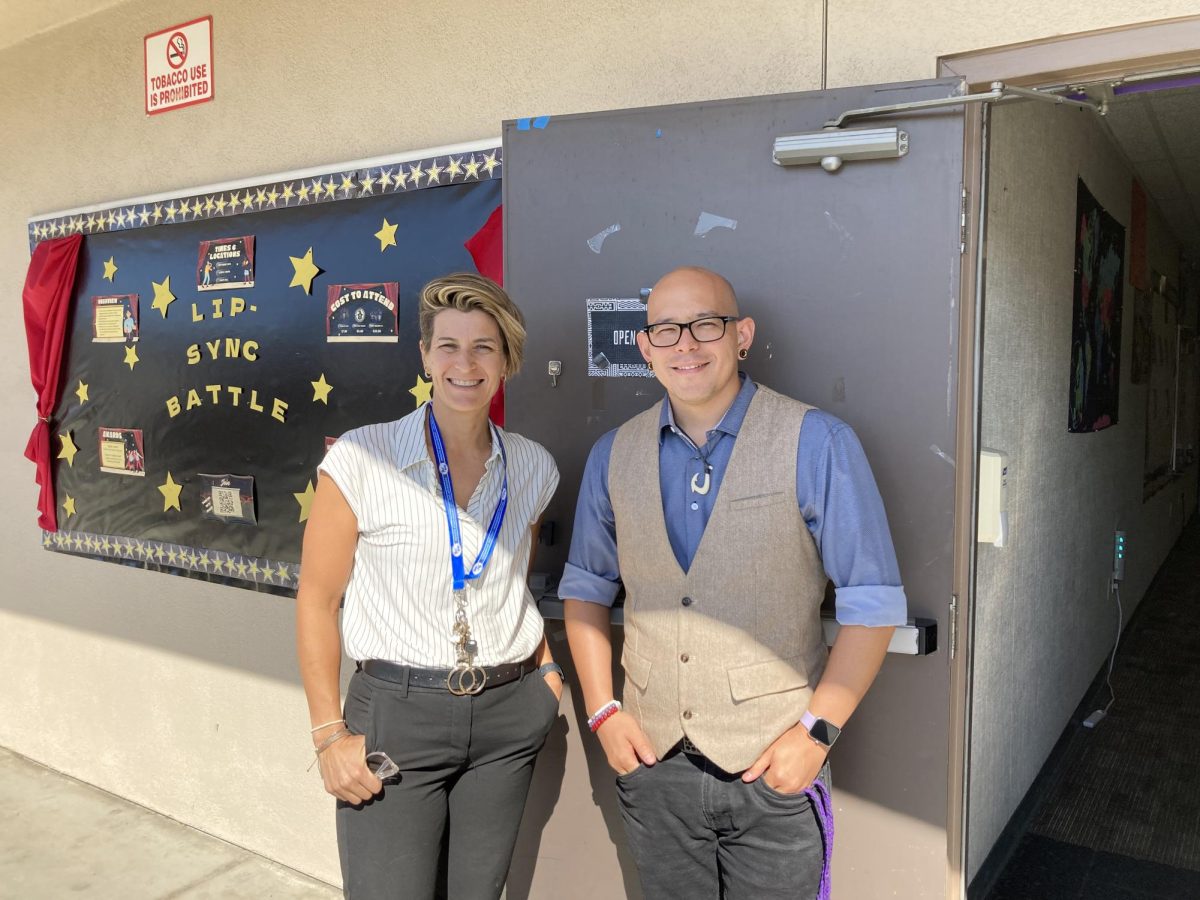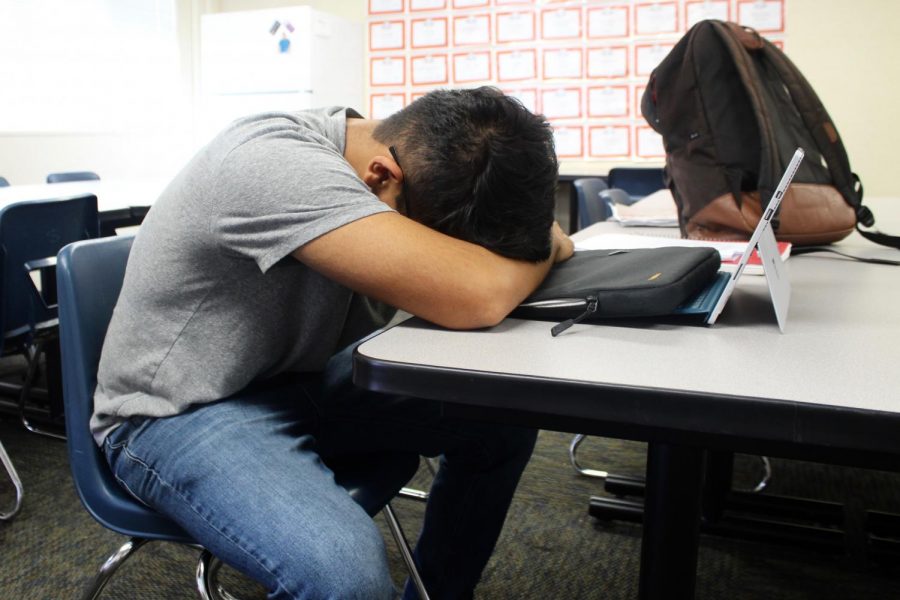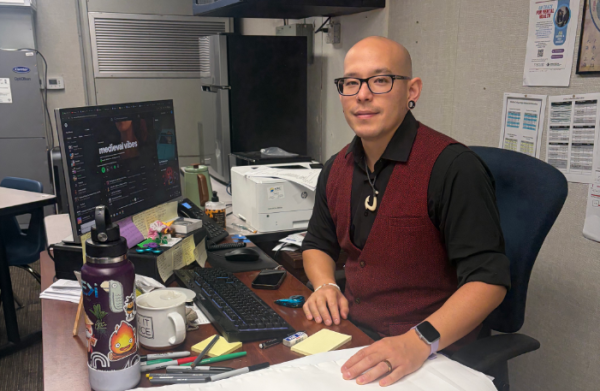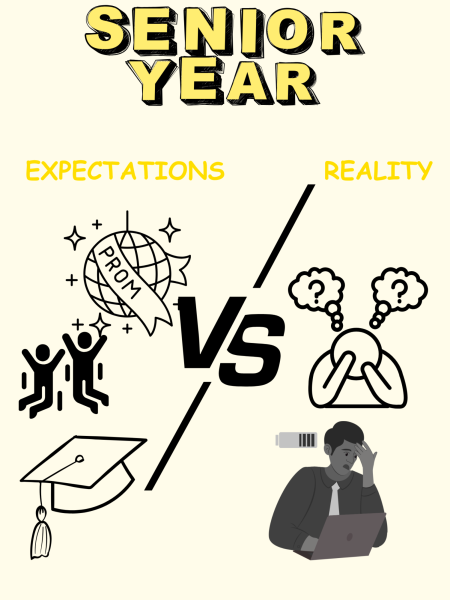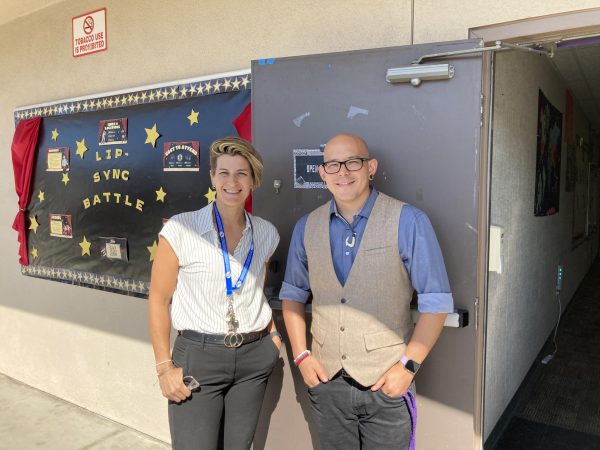The “No Sleep Epidemic” at MCHS
MCHS student sleeps in class.
Students can all agree that one of the most unpleasant sounds is hearing the alarm clock going off every morning. You snooze it multiple times, wishing that school gets canceled, but we all know that’s never going to happen. The main reason why students everywhere can’t bear to hear the sound of an alarm clock is because it means it’s time to wake up and go to school. Most students are exhausted when they come to school because they got no sleep the night before, and the night before, and every night prior to that. At MCHS, life is more challenging to most students because of their college classes and divergent schedules. This is believed to prompt and idealize the lack of sleep here.
The Sleep Health Foundation describes the main reasons why people don’t get enough sleep is due to their working and school schedules, and that seems to be causing the stress that further inhibits their lack of sleep. One surprising factor discovered was that many people do not realize how important sleep is. Instead, they may think of it as a waste of time and take it for granted. At MCHS, that rarely seems to be the case among the students because many don’t get the necessary sleep they need. According to a poll taken by most students, 61 percent of them get six hours of sleep or less. The National Sleep Foundation recommends that high school students should get anywhere from “8 to 10 hours of sleep”. Our students aren’t getting the hours necessary to successfully go about their day. However, about 8 percent of the students actually reach the goal of sleeping for eight hours or more.
“Junior year is the hardest year,” is what most sophomores hear from current juniors. There are so many homework assignments, testing days, and college preparation tasks, that it’s overwhelming for most students. Junior Sarah Gutierrez said about her current sleeping habits, “I never go to sleep late unless I have a lot of tests I need to study for; then I’ll go to sleep around 12 a.m.” Homework doesn’t prohibit Gutierrez from sleeping early because she doesn’t procrastinate. As a junior, it is expected that she should be sleeping late, but she is one of the few students at MCHS who is able to manage her schedule and get a goodnight’s rest, despite her homework loads. She proves that not everybody who gets a lot of homework must sleep late, as she said, “I know how to manage my time.” It’s all about how to make the most out of your time. Senior Fernando Estrada, on the other hand, gets anywhere from four to five hours of sleep because as he said, “I come out of class late, so I have to push my homework and do it later since I have no time.” The chances are that most of MCHS have and will take a night class, so many of us understand how stressful and overwhelming it is to get loads of homework assignments done the night before. He also said, “I don’t think I’m sleep deprived because I drink a lot of energy drinks like Rockstar, and that gives me the energy to do the homework I didn’t get to do during the day.” In the poll, 12 percent of students cope with no sleep through the use of energy drinks such as Monster or Rockstar, as well as coffee. But the most common way that they deal with the lack of sleep is by simply doing nothing; 40 percent of them just go about their day.
The U.S. Department of Human Health & Services states that when students or people don’t get enough sleep, that starts to affect their performance in school, alters their mood, and leads to sleep deprivation and/or other related mental issues. For example, in the poll conducted, 53 percent of the students don’t get the necessary hours of sleep due to their anxiety and stress. Gutierrez believes that when students don’t get a good night’s sleep, that “affects their school performance and their work ethic.” 75 percent of students believe they get too much homework, simply way too much. This causes them anxiety and stress. When combining the excessive homework load, compulsive work schedule, and mental issues, that significantly prevents students from sleeping the hours they should be.
Students have numerous ways in which they deal with no sleep because they experience it every day. They have shared some techniques and tricks that best works for them when coping with the lack of sleep. Here are a few of the most common ones:
- Set a fixed time where you have to finish your homework
- Take energy drinks or coffee to increase your energy
- Nap whenever you can, but don’t over do it
- Slowly start a sleeping schedule and set a bedtime
- Eat proper nutrients and meals to maintain your energy
- Listening to music can keep you occupied
- Breathing and drinking water before bed
- Complete assignments when assigned
- Walking and exercising
- Take cold showers
Students don’t get enough sleep because they have a difficult time balancing homework, class and work schedules, and mental issues like stress and anxiety. They need to start getting more sleep because the research has shown that sleep deprivation alters one’s mood, performance, and leads to depression. The strategies students listed above are ways that students can start coping with their lack of sleep. Everyone goes through sleepless nights once in a while, but hopefully, now students have a better understanding of how to deal with it.

Fun Facts:
I've watched "Grey's Anatomy" three times... and counting.
I McLove McChickens.
Medicine is cool.

